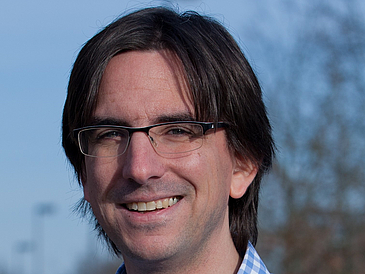Pharmaceuticals and personal care products (PPCPs) enter environmental waters through various pathways, with potential negative effects on aquatic organisms and on human health. Among several options for more efficient PPCP removal, adsorption-based routes using zeolites are currently being explored on the lab scale. In this contribution, I will show how atomistic simulation at different levels of theory can be exploited to predict promising zeolite adsorbents, and how they can enhance the atomic-level understanding of the interactions between functional organic molecules and zeolites. In addition, I will highlight challenges that need to be addressed in order to establish more robust links between simulation and experiment.
Michael Fischer heads a subgroup „Crystalline Microporous Materials“ within the Crystallography & Geomaterials Research group at the Faculty of Geosciences, University of Bremen. His research employs computational chemistry methods at different levels of theory to study the structures and properties of crystalline materials. Current work, funded by the DFG through a Heisenberg fellowship, focuses on the investigation of zeolites and related materials for the removal of emerging organic contaminants, especially pharmaceuticals and personal care products.


